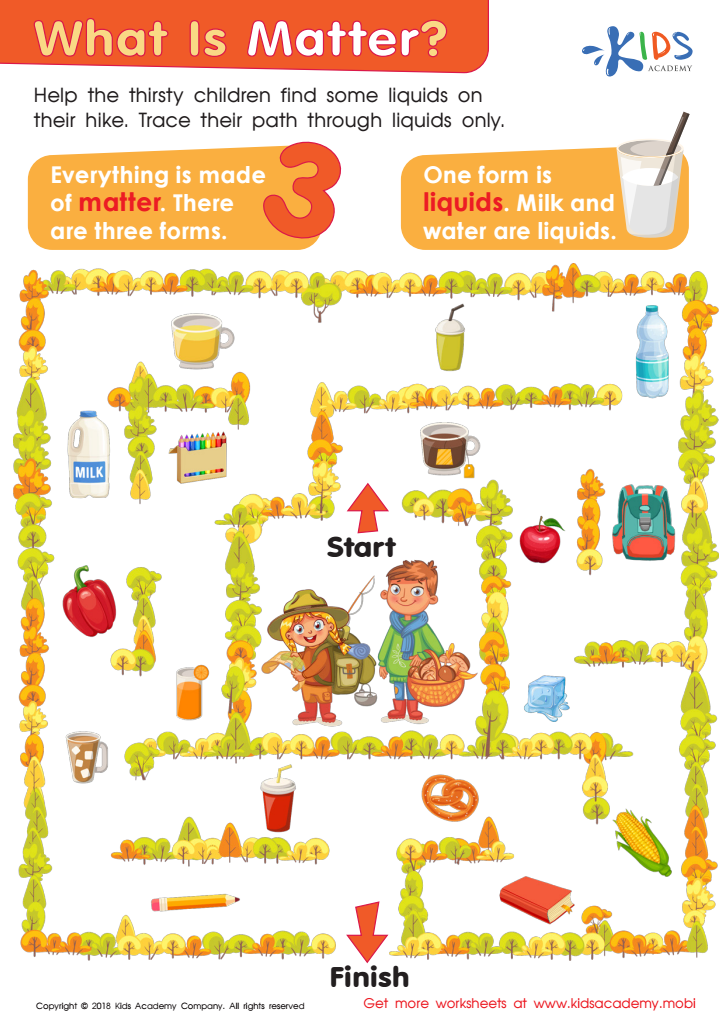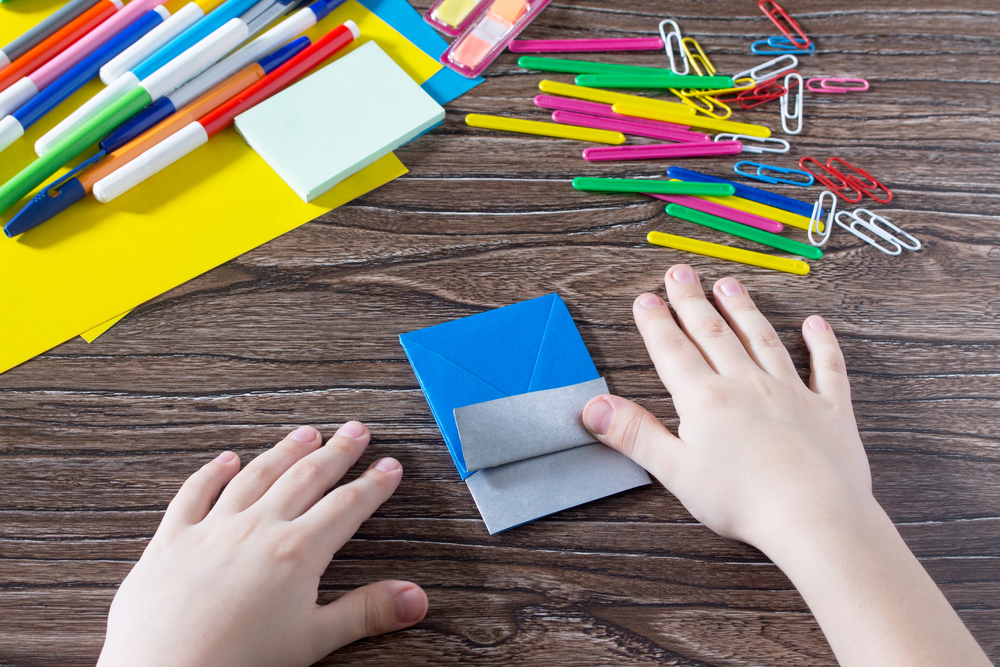Recognizing examples Worksheets for Kids
1 filtered results
-
From - To


What Is Matter? Worksheet
Question/Answer
How to train the Recognizing examples skill in Grade 1 students learning about Physical Science?
To train the Recognizing examples skill in Grade 1 students learning about Physical Science, engage them in hands-on activities and experiments that relate to their daily lives. Use simple, relatable materials to demonstrate concepts such as the states of matter, light, sound, and motion. Encourage students to observe, ask questions, and identify examples from their environment or classroom demonstrations.
What are some effective activities to train students’ Recognizing examples skill when teaching them about Physical Science?
Effective activities for training students in recognizing examples in Physical Science include interactive lab experiments, group discussions analyzing real-world examples of physical principles, multi-media presentations highlighting phenomena, and matching exercises where students pair examples with the correct scientific concepts. Incorporating quizzes with pictorial or video examples also reinforces their ability to identify and understand scientific concepts in real-life contexts.
How does the mastery of the Recognizing examples skill affect a student's performance at an early age?
Mastery of the Recognizing examples skill at an early age significantly enhances a student's learning capabilities. It enables them to identify and understand concepts more efficiently by relating new information to familiar instances. This foundational skill fosters cognitive development, improves memory retention, and aids in the application of knowledge, thus positively affecting overall academic performance and problem-solving skills.
 Assign to My Students
Assign to My Students





.jpg)








